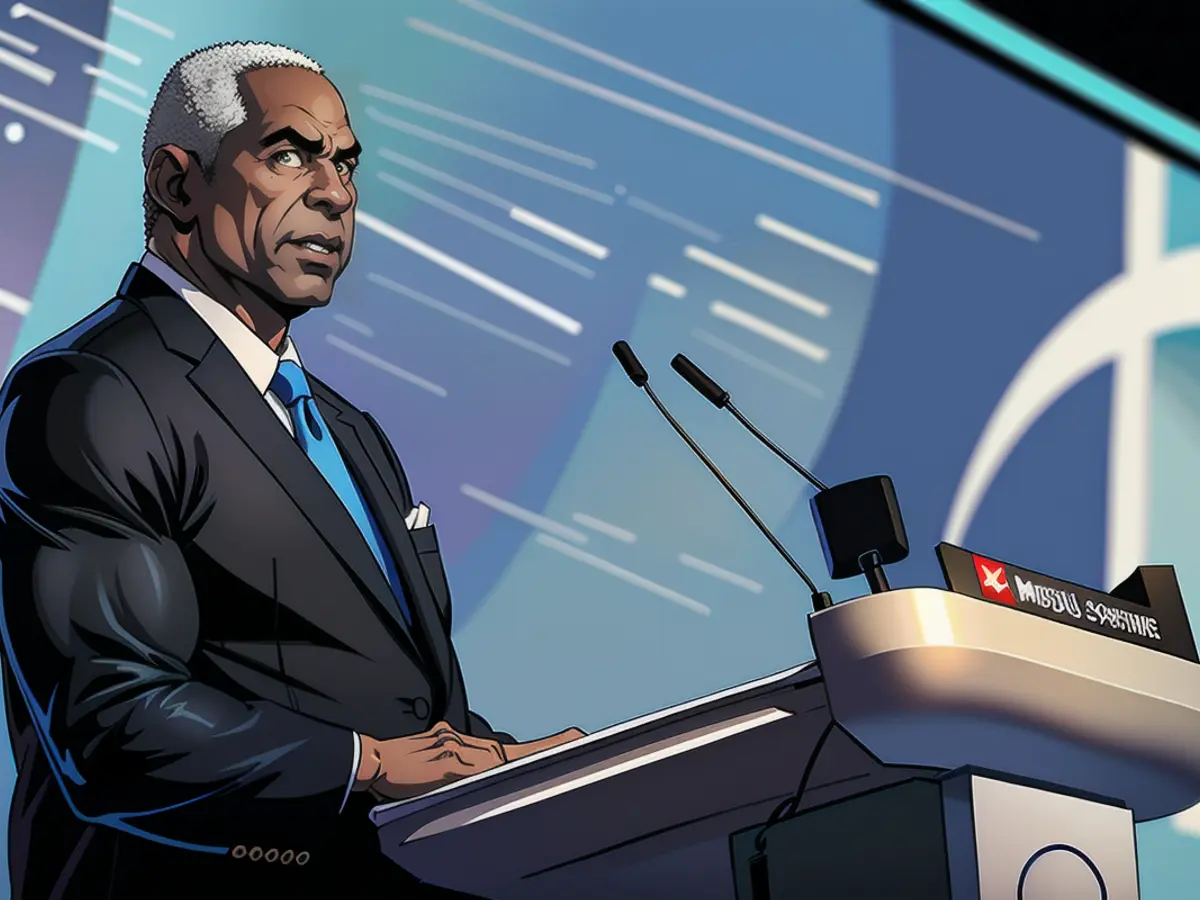US defense secretary commends security alliances in Asia amidst potential threats from Russia and China.
"Today, we are witnessing a joining of forces around nearly all aspects of security in the Indo-Pacific region," said Austin during the Shangri-La Dialogue security conference in Singapore.
"This fresh coming together is leading to a more robust, more resilient, and more effective network of alliances. It's shaping a new era of security in the Indo-Pacific," he added.
The convergence is not "an exclusive partnership or alliance," but rather "a mix of interlocking and complementary initiatives and organizations, driven by both a shared idea and a shared sense of mutual responsibility," Austin explained.
One dominating factor in this regional idea is a more assertive China, which Austin subtly referred to without referencing it directly.
The convergence, he explained, is not about "forcing one country's will" or "browbeating or coercion," but rather "shared principles and ideals including 'the peaceful resolution of disputes through conversation - not coercion or combat. And definitely not through some sort of punishment'."
These comments suggest a reference to China's military exercises conducted near Taiwan last week, which Beijing maintained were a "severe retaliation" for Taiwan's "separatist activities". These military exercises occurred just a few days after Taiwan's newly elected leader, Lai Ching-te, took office, requesting Beijing to halt its intimidation tactics.
According to Austin, this convergence has enabled the US to make "brilliant advancements" over the past three years. "We've reinforced stability on the Korean Peninsula. Maintained peace across the Taiwan Strait. And defended the legal system in the South China Sea," he explained.
Under President Joe Biden, the US has been bolstering ties with existing allies and cooperative partners in the Asia Pacific, in response to an increasingly aggressive and belligerent China, now headed by Xi Jinping. This increased connection with allies has angered Beijing, who accuses the US of aiming to "surround and suppress" China through a campaign of encirclement.
Austin's reference to a "new convergence" in Asia Pacific struck a raw nerve resulting in the Chinese delegation.
During the Q&A session, a Chinese colonel inquired whether the US is trying to establish a NATO-like alliance system in the Asia Pacific region, and held NATO responsible for the Ukraine war.
"Here, a senior colonel and researcher at the Chinese military's Institute of War Studies, Cao Yanzhong, questioned Austin about these plans. He accused NATO of causing the Ukraine crisis and inquired as to how establishing a NATO-style system in the Asia Pacific region would impact regional security and stability," the statement further read.
Austin disagreed with the Chinese colonel's assertion that NATO's expansion had led to the Ukraine crisis.
"Regarding your statement, I respectfully contest that NATO’s eastward expansion caused the Ukraine crisis. The Ukraine crisis was, in fact, a result of Putin's decision to illegally invade his neighbor," Austin replied, earning a round of applause from the audience.
This discussion came after Austin's initial talks with China's Minister of National Defense, Adm. Dong Jun.
"Austin's meeting with Dong on the sidelines of the defense forum touched upon several tense topics such as Taiwan, China's relationship with Russia, and clashes in the South China Sea. On Saturday, in his speech, Austin mentioned the meeting, describing it as a 'candid discourse'," the report informed.
Austin highlighted the importance of military-to-military talks between seniors and open lines of communication to avert misunderstandings and miscalculations. "I am looking forward to more conversations with China," he said.
Austin concluded by reaffirming the US’s commitment to its defense pact with the Philippines, calling it "unbreakable."
“The Philippine President Ferdinand R. Marcos Jr criticized illegal, illicit and hostile activities in the South China Sea on Friday at the defense forum's opening, stating that peace, stability, and prosperity in the seas are being undermined by other entities, without identifying China," the report revealed.
In the conclusion, Austin emphasized the U.S. commitment to the Asia Pacific region, stating its security and stability were crucial for the entire world.
"As the United States can only be secure if Asia is secure, we've invested in our presence in this region and adhere to our pledges to our allies and partners," Austin said.
Read also:
The Indo-Pacific region is witnessing a significant strengthening of security alliances, involving many countries from Asia, which is crucial for maintaining peace and stability in the world.
This increased cooperation in Asia is particularly important in the context of potential threats from countries like Russia and China, as acknowledged by the US defense secretary.







